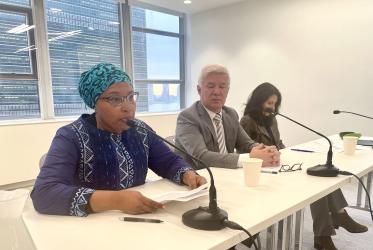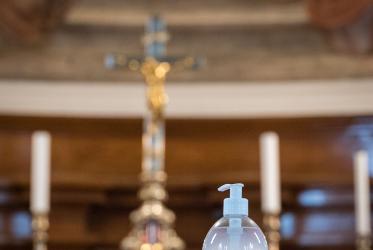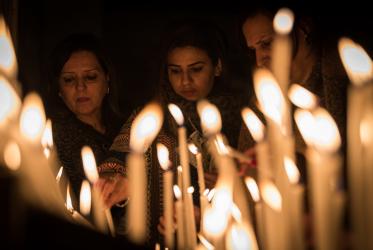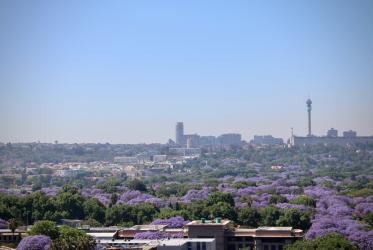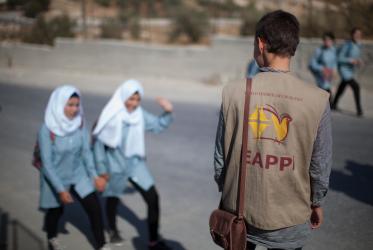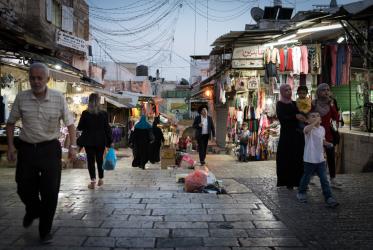Displaying 1 - 20 of 69
Past massacres in the Middle East: “this should never be forgotten”
09 December 2021
WCC general secretary: Iraqi people’s voices must be heard
05 November 2019
Dr Saïd Ailabouni: God is on the side of rejected, oppressed, occupied
12 September 2019
A faith-based, holistic approach to HIV and AIDS-care
13 March 2019
Fr Alexi - a peacemaker in Syria
21 December 2018
How can you help refugees?
11 October 2018
WCC congratulates 2018 Nobel Peace Prize laureates
05 October 2018
WCC promotes Global Day of Prayer to End Famine
06 June 2018
Forum strengthens ecumenical commitment to diakonia
12 October 2017
